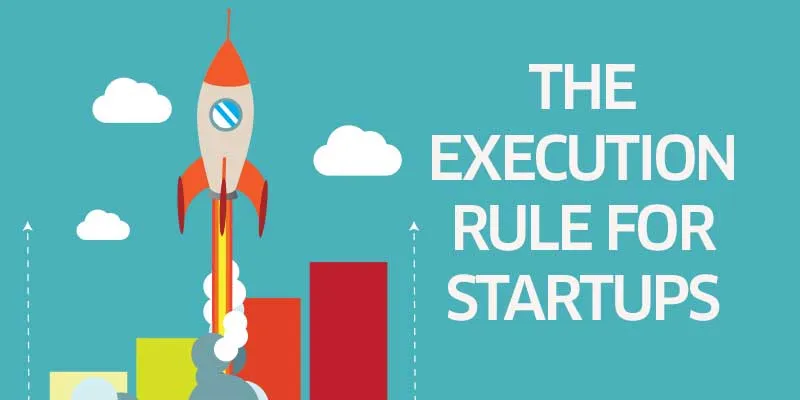The execution rule for startups
The other day, I was talking to a saleswoman from linkedin and I told her that “I would be taking the decision in about one month” and she replied “You are a startup, don’t waste your time on taking a decision, take it in one week, or just leave it” that strikes in my head so badly that at Aspricot, we’ve devised a complete new process of taking decisions which has been helping us conquer amazing things.
As an entrepreneur, everyday you face a lot of challenges, challenges in which you have to make decisions, which are critical to your business and growth for years down the line. One simple decision can turn the whole business around, and that is the most exciting part.

Decisions are very Critical Part of your Startup, at aspricot, we have simplified the decision making process and that has helped us in two ways - to learn and achieve things faster. Here is what we do:
- 24 Hours - Make the decision
We waste a lot of time in taking decisions & most of the time we are not sure whether we should do something or not. We need a lot of advice to take decisions, from people - but they only give opinions and not advice; Internet Research, but all those research is never going to fit in your scenario.
Let's make it easy and dumb down the decision like how steve jobs did it for his clothes, as a decision maker we always have a gut instinct, so let's just go on the basis of that, If your gut instinct says take it, then take it, because if you don't take it, you will waste months thinking about the same. If it says no, then you already know what to do. Take the decision in the first 24 hours itself, don't extend it more than that.
It doesn't need experience to take decisions, it will come along the way when you take decisions.
A friend of mine told me that in America, each day about 50% of the millionaire make decisions which are making them either bankrupt or billionaire.
The only thing you need to keep in mind is, you need to have ownership of the decisions, you need to own the decisions or whoever in your team is suggesting the decisions has to have the power to own it up for both good or bad that is going to happen.
- 24 Hours - To process the decision.
Once the decision is made, no matter even if it's saturday night in a club, start working on the decision and make sure you have the following things up and ready within next 24 hours:
- Clearly write the pros and cons of the decisions
- Calculation of Finances Involved + Profit and Loss after execution
- Team involved in the decisions
- Complete Draft of Execution Process
At an early stage of your startup, decisions are less costly as compared to large organisations, the more time you take in making those decisions, the more cost and time you are adding to the outcome.
Once the outcome is there, you know what you have to do, let's start executing it up. If there are external forces impacting your decisions, try to figure out hacks you can do to get them in place. Keep in mind AirBNB/UBER were all hacks, they also didn't had any resources, they just summed up what was available in the market. And there is a hack available for everything you are trying to do.
- 7 days - To execute the decision.
I know this sounds too crazy, but there are hardly any decisions in a startup which cannot be executed in 7 days, if you are taking more time, probably you are too lazy or doing it wrong.
At the point of starting the execution, brief your team about the complete decision, brief them only the good that is going to happen if you execute well, strictly don't tell them the cons.
Points to keep in mind:
- Incharge of the execution plan, if the team is small and you are a founder, you have to be the incharge.
- If you have a proper execution roadmap, then follow up with the executing team twice a day.Once in the morning about what has to be done in the morning.
- Once in the evening about what is done throughout the day.
- Don’t depend too much on external sources for the first version of your execution. They will delay the process.
- Authorities pre-assigned to the team in which they can make their own decisions and make things faster.
- 24 Hours - The outcome.
Now there are two things that happened, either you had a little success or you had a complete failure. Now write everything that your team has done and analyse.
If you had a little success, it's time to boost and optimise everything that the execution team has done in the past one week.
If it failed, you had a great learning, you wanted to do something, but that didn't worked out, there are probably two reasons, that idea was wrong or your execution process had glitches. But now you have experience. If you still believe in the idea, rethink the executing process again, note down the pain points, figure out their solutions and execute it in 7 days.
At Aspricot, we wasted two years in just taking small decisions, but decisions that we have started taking in 24 hours worked out really well, we have experienced a lot of things in the past couple of months, following our some great experiences:
- Hiring PAN India - Worked
- Adword Marketing - Worked
- Moving to New Office - Failed
- Trying to become a cool company - Failed
- 7 Day Execution Process - Super Worked
Also, after executing the above 7 things, I analysed a lot of bigger companies, the fortune 500 ones and the unicorn startups is moving fast. See the example of iPod and other mp3 players. What took companies like sony generations to build was built by apple in couple of years. What took individual taxi companies centuries to build was done by Uber in just couple of years. It's only about speed and hacks, it's not about anything else.

Recommended: After we implemented this process, we had discussion with other entrepreneurs, one of them said this book is also on the similar lines The Day Startup Learn Launch though I haven't read it yet.
About the author
Ishan Vyas is the founder of Indore-based startup Aspricot which is committed towards building digital businesses. With its presence in 36 countries, valuation of this bootstrapped company is USD 2 million.







